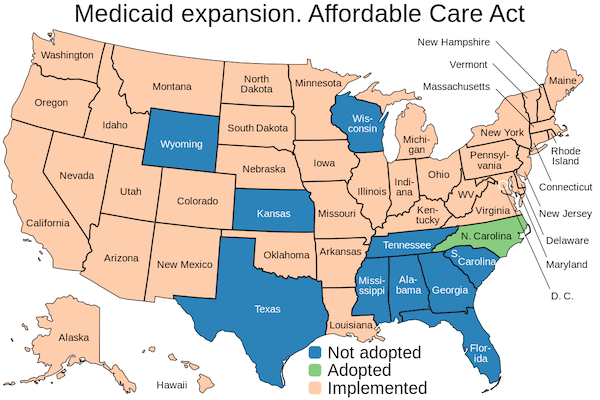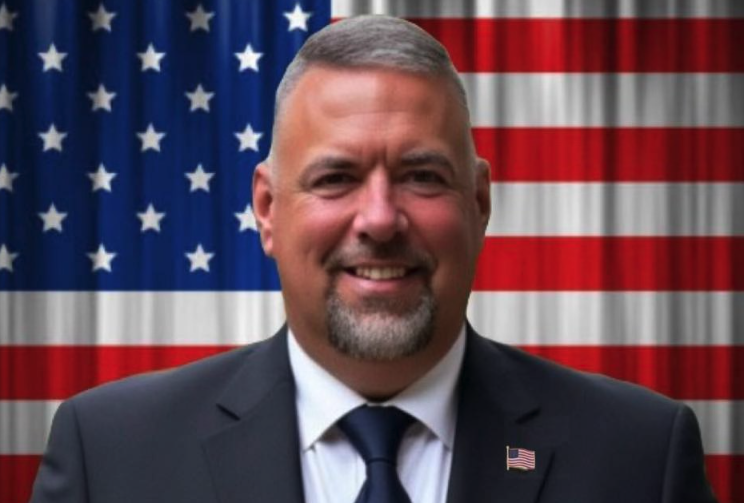Jim Beam column:Landry wants to change Medicaid
Published 6:59 am Wednesday, December 27, 2023

- (Image courtesy of Wikipedia)
The over half-million Louisianans who qualified for Medicaid after it was expanded eight years ago were happy to hear back in April that six of the seven candidates for governor said they would keep the program. Gov. John Bel Edwards expanded the federal-state health care program for low-income Americans in 2016, his first day in office.
State Republican Attorney General and Gov.-elect Jeff Landry was one of the six. He said in an interview he would keep the program. Although he isn’t ending the program, we learned last week that Landry is considering work requirements and copayments for those covered by Medicaid.
Medicaid work requirements typically compel able-bodied adults to have a job, volunteer or enroll in school in exchange for coverage, according to a news report in the Louisiana Illuminator. Copayments are a form of cost-sharing for health care plans.
Trending
Landry said of his plans, “We are working to take people from dependence to independence. The more freedom you give a person, the more opportunity you give them to work, the more they are able to implore their labor, the more rewarding that individual is.”
Edwards was asked during an interview by The Advocate why states surrounding Louisiana haven’t expanded Medicaid. The interviewer said those who haven’t expanded the program say people need to work.
“Those things are either born out of ignorance, or carelessness. Neither speaks well of the person who makes those sorts of statements,” Edwards said. “These are working people; the reason they didn’t have insurance was because they were working poor.
“If they were the poorest of the poor, if they didn’t work, they would qualify for Medicaid. And if they worked a job that paid better, they could afford insurance, or maybe have it as a benefit of employment.”
The Congressional Budget Office (CBO) said if work requirements were implemented nationwide, each year an average of 15 million enrollees would be subject to the new requirements and about 1.5 million of them would lose eligibility for federal funding.
KFF polling data finds that about half of U.S. adults say it is difficult to afford health care costs, and one in four say they or a family member in their household had problems paying for health care.
Trending
The Associated Press said some people were wrongly kicked off Medicaid in Arkansas when the state briefly introduced work requirements. About 1 in 4 people who were required to work lost coverage in Arkansas’ experience with work requirements in 2018.
Eventually, a federal judge directed Arkansas to throw out its work mandate altogether, according to The Illuminator.
The administrator of the Centers for Medicare and Medicaid Services told lawmakers that in some cases, people weren’t required to work but didn’t fill out the required paperwork.
“It’s not just people who are subject to the requirements that often get caught up in red tape,” the administrator said. “It can often be people who are exempted.”
The AP said some people who picked up work, earned a small raise or switched jobs are finding those new incomes could soon cost them health care coverage.
The Illuminator said copayments for Medicaid enrollees also tend to see tremendous pushback from hospitals and other medical providers. Hospitals and doctors often lose out on money when Medicaid patients are asked to pay for part of their services.
Mississippi eliminated copays for its Medicaid enrollees in part because local hospitals said it was difficult for them to collect the money from patients.
Health care providers said people on Medicaid are, by definition, low-income or living with a disability. They often can’t afford to cover a portion of their bill out of pocket.
Randy Morris, chairman of Louisiana’s Rural Hospital Coalition, said, “We’ve always been against copayments.”
What Landry is proposing for Medicaid is a national Republican goal. GOP members of the U.S. House earlier this year passed legislation requiring people to work for health care coverage through Medicaid. Democrats oppose work and copay requirements, so it didn’t become law.
The Illuminator explained why both are bad ideas. Most Medicaid recipients in Louisiana are children. Thousands of others have disabilities that make it impossible to hold a job. Low-income people enrolled in Medicaid are often already employed; they just don’t earn enough money to be able to afford private insurance.
Louisiana legislators briefly looked at work requirements for Medicaid in 2018 but abandoned the proposal when it appeared a work mandate might cost the state more money than it saved.
The evidence is beyond question. Landry’s Medicaid plans are definitely losing propositions.





